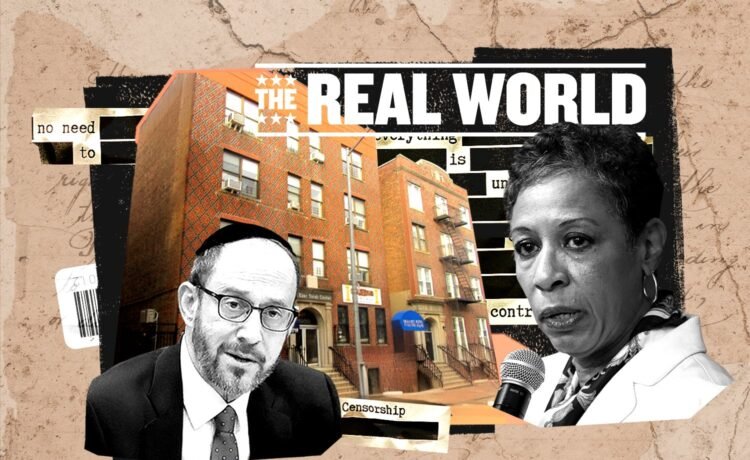“Member deference” is not dead, but it cracked more than ever on Thursday.
The City Council, in an unprecedented move, voted twice at the same meeting to approve real estate projects over the objections of the local Council members.
The two most recent examples of this break from Council custom had been single votes in 2021 and 2009.
One of Thursday’s votes was expected, as Council leaders had made clear earlier in the week that the chamber would approve 58 units of supportive housing in the Bronx for people just released from incarceration.
In that case, the overwhelming Democratic chamber defied Republican Kristy Marmorato, who in 2023 ousted a Democratic incumbent in part by campaigning against the project. Mayor Eric Adams, who is warring with Council leaders, also opposed the Bronx project after previously supporting it.
Because of that unique set of circumstances, the Council’s action does not necessarily signal an increased willingness to buck the local member.
The other vote, on a more typical project, came a bit out of the blue. It may be more relevant to the real estate industry, which for decades has been held hostage by the local Council member on rezonings because the other 50 members nearly always parrot their colleague’s vote.
By a vote of 37 to 8, members approved a rezoning to allow 53 units of affordable housing for seniors at 1946 East Seventh Street in Homecrest, a block from Ocean Parkway.
One of the “no” votes was from that district’s representative, the conservative, convivial Democrat Simcha Felder. Some neighbors of the project site were opposed to the seven-story project, calling it too big. It will replace two vacant, four-story apartment buildings built in 1925.
Some NIMBY opposition is almost always inevitable, even for utterly harmless projects like the one proposed for East Seventh Street by Ahi Ezer Congregation, an Orthodox Jewish organization. Felder is also Orthodox, and is at no risk of losing his seat, yet he folded like a cheap suit at the behest of the noisy neighbors.
“It’s a good project,” one of Felder’s colleagues texted The Real Deal moments after the vote. “I’m glad we passed it.”
Affordable housing for seniors is among the easiest uses to get through the Council. Letting people on fixed incomes age in place appeals to progressives and conservatives alike. Local opposition is generally muted because elderly people are quiet and law-abiding, and don’t contribute to traffic congestion or school or subway crowding.
Still, Community Board 15 voted 32-0 against the application for East Seventh Street, calling the project’s height “detrimental to the community in terms of congestion, traffic, and the shadows it will cause on neighboring properties.”
“It is way out of character for the neighborhood,” the board concluded in a characteristic, knee-jerk reaction to any increase in housing density.
Ahi Ezer’s proposal was supported by Brooklyn Borough President Antonio Reynoso and the City Planning Commission. “The change in zoning from R5 to R6A/R7A will facilitate much needed senior affordable housing in the area,” Reynoso’s recommendation stated.
But the override of Felder had more to do with outgoing Council Speaker Adrienne Adams, who vowed early in her tenure that the chamber would increase housing production, and with the chamber’s Progressive Caucus, which has embraced “abundance” as an answer to the housing shortage.
Thursday’s votes were a promising sign that the Council is more willing than ever to put the city’s housing shortage ahead of narrow-minded neighbors and their local representative.
Read more

4 ballot questions could defang City Council’s stronghold over rezonings and housing

City Council hints at lawsuit over land use ballot questions

Bad blood: City Council approves project in rare break with custom








Recent Comments